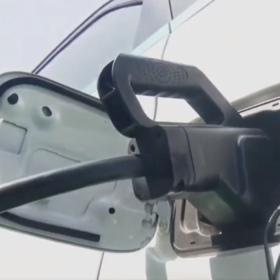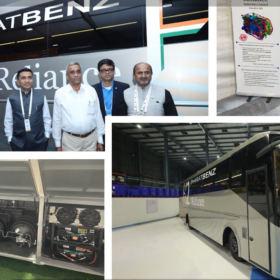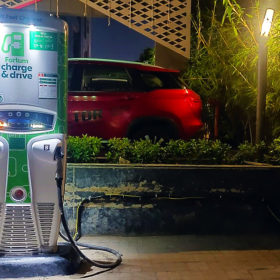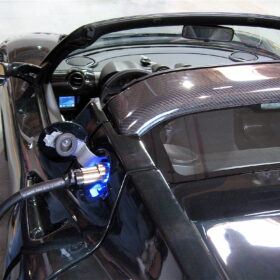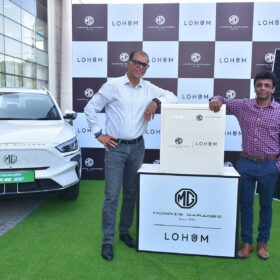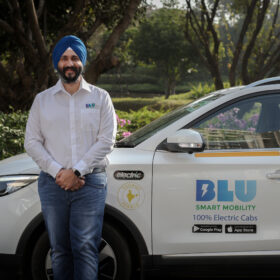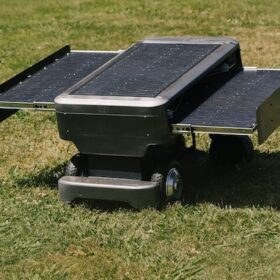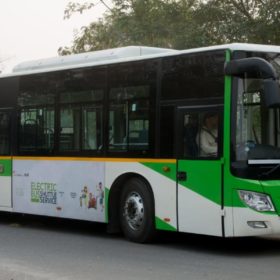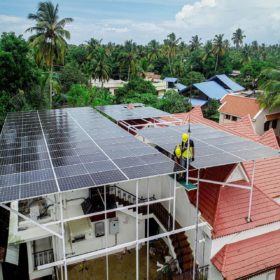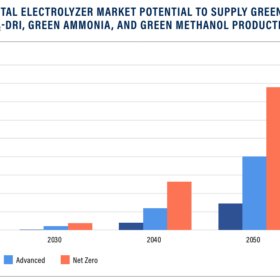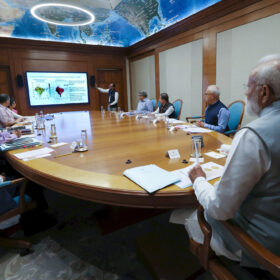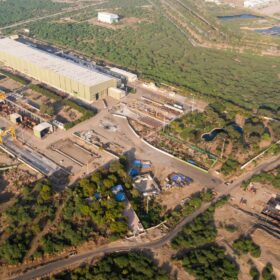BPCL targets EV charging facility at 7,000 fuel stations by December next year
Bharat Petroleum Corp. Ltd plans to convert 7,000 of its fuel stations into complete energy stations by equipping them with electric vehicle charging facilities by Dec. 2024.
Reliance Industries, BharatBenz unveil intercity luxury bus powered by hydrogen fuel cell
The intercity luxury coach, engineered by BharatBenz, runs on Reliance Industries’ hydrogen fuel cell technology.
Delhi’s aggressive EV timelines may hit gig workers’ livelihood: IAMAI
The recently released Delhi motor vehicle aggregator and delivery service provider scheme envisages that aggregators and delivery service providers in Delhi will switch to an all-electric fleet by April 1, 2030.
Epsilon Advanced Materials plans $650 million EV battery anode facility in USA
India’s Epsilon Advanced Materials will invest $650 million to set up a graphite anode processing facility in the USA. The facility will produce high-capacity synthetic anode materials for electric vehicle (EV) batteries.
Faster electric car rollout in Bangladesh demands policy support
The economic burden of air pollution in Bangladesh, for which transport is one of the major reasons, calls for strong policy-level intervention to increase the adoption of electric cars.
Lohum introduces 5 kWh storage system made of second-life EV battery
Noida-headquartered Lohum has introduced a 5 kWh energy storage system under its collaboration with MG Motor India to develop second-life solutions for used EV batteries.
BluSmart raises $42 million to scale EV fleet, megacity operations
BluSmart Mobility secured $37 million in equity and $5 million in venture debt in its latest funding round. It will use the funds to expand its EV fleet capacity to 10,000 over the next one year and penetrate deeper into megacities.
PV-powered robotic lawn mower from New Zealand
Researchers from Massey University in New Zealand have developed a robotic lawn mower with three 50 W solar panels and a 20 Ah lithium-iron-phosphate (LiFePO4) battery. Two of the PV panels can be retracted and stacked inside the robot. They slide out when it needs to recharge its batteries.
India can achieve energy independence by 2047 through clean technology: Study
Berkeley Lab study shows how deep cost reductions in clean technology and India’s renewable and lithium edge can enable a pathway for cost-effective energy independence by 2047.
State EV policies need better implementation mechanisms
A study reveals that none of the eight states where EV policies have been active for two years or more is on track to meet its targets of EV penetration, charging infrastructure, or investments.
